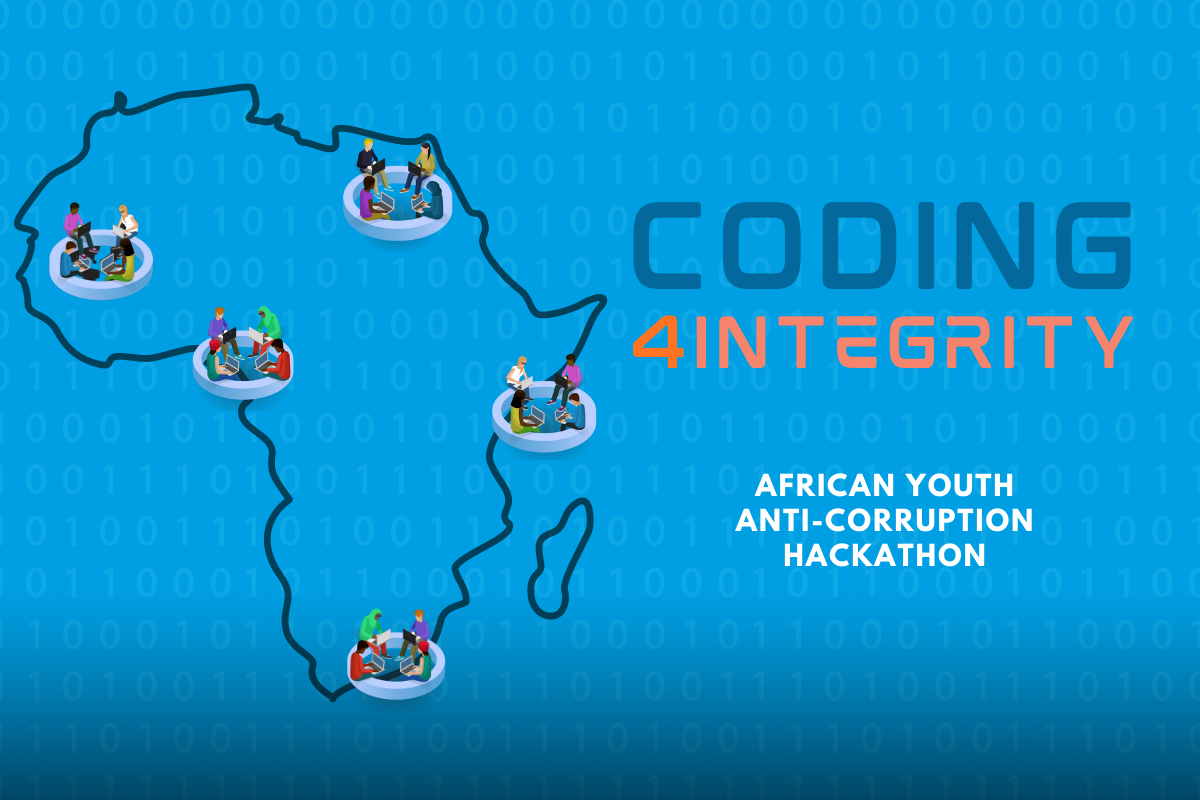
15 October 2021 – Young people have the incentive and the drive to create a better world – they are, after all, the ones who will lead this planet long after the current generation of decision makers. Crucially, they are also able to offer unique ways of approaching problems and finding solutions to some of today’s biggest issues, including through their sometimes-innate understanding of the role and workings of information and communications technologies (ICT) in our daily lives.
Against this reality, UNODC, in partnership with several public and private sector organizations, this week kicked off a new, month-long hackathon (or coding competition) involving youth from across Egypt, Kenya, Nigeria, Senegal and South Africa. Designed to harness the interest, talent and skills of young people to provide innovative technology solutions to curb corruption, the hackathon – Coding4Integrity – is one of the ways UNODC is actively working to promote the development of sustainable ICT-based anti-corruption solutions and, ultimately, to advance the implementation of the United Nations Convention against Corruption (UNCAC).
More than 1,900 developers from the five African countries applied to take part in the hackathon – a figure highlighting both the breadth of expertise in the ICT space as well as young people’s interest in offering solutions to tackle the scourge of corruption. After an extensive evaluation process, 200 final participants were chosen and divided into 65 teams. Out of those selected, more than a quarter are female, which ensures both that the solutions being generated are gender-inclusive, and that the gender gap within the ICT space – like with other industries and professions – is being addressed.
With 2021 marking a major year in the battle against corruption, the hackathon takes places at a particularly important time. In June, the first-ever General Assembly special session against corruption was held in New York, while in December, governments, civil society, the private sector, the media and more will gather in Sharm el-Sheikh, Egypt, for the ninth session of the Conference of the States Parties (CoSP9) to UNCAC.
Ahead of this global meeting, the hackathon offers young developers the chance to come up with their own ideas on how to counter corruption through technology. It is designed to encourage solutions around a series of thematic areas, including transparency in public administration; transparency in public procurement and the administration of public finances; safe and reliable reporting of corruption; and financial investigations. Each of the 65 teams will choose a single thematic area and develop their ideas within one of three hackathon tracks, namely Artificial Intelligence; Blockchain Dapp Development; or Web2 Development.
Team submissions will be evaluated across several fronts, including their uniqueness and how well their ideas will fit the local context. One team per country will ultimately be selected to go on to a final round to be held in person at a special event at CoSP9. Between the end of the hackathon in mid-November and the special event in mid-December, these five teams will have the opportunity to further develop their technology solutions with the support of public sector partners seeking to increase the use of ICT solutions as part of their anti-corruption efforts. Private sector entities are also supporting the hackathon, as both technological and mentorship partners, as well as financial sponsors to provide prizes for the winners.
The event being rolled out now in the five countries follows on from a successful six-week virtual hackathon which was held in October 2020 to challenge young web developers in Eastern Africa to find innovative blockchain-based solutions to counter corruption. A first of its kind for the region, the hackathon was an important step towards promoting youth awareness and the meaningful engagement of young people, and advancing the implementation of UNCAC through innovative means.